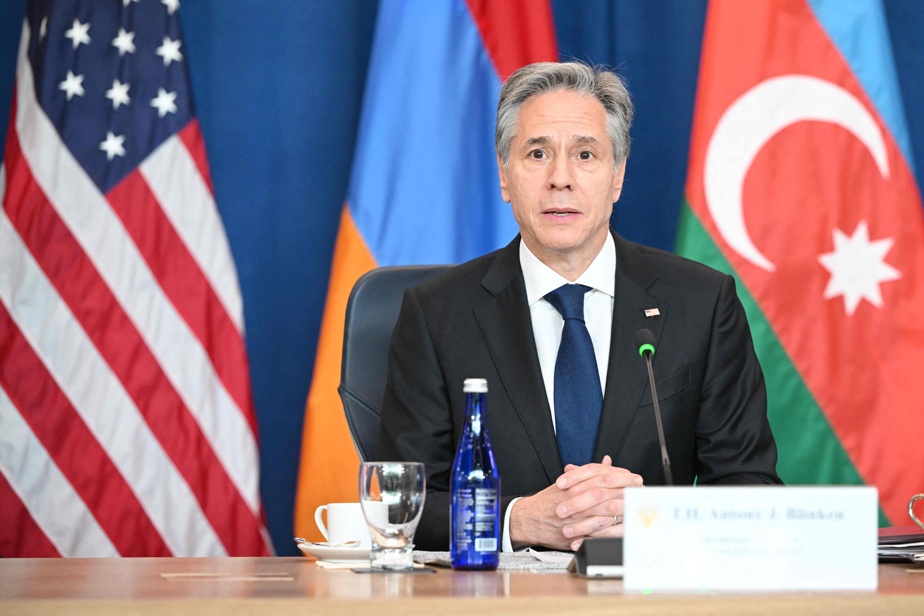(Washington) Armenia and Azerbaijan on Thursday approached a peace agreement over the disputed enclave of Nagorny Karabakh, the object of two wars, without having succeeded despite four days of intense discussions under the auspices of the United States.
“Both sides have addressed some very difficult issues over the past few days and they have made tangible progress towards a lasting peace agreement,” US Foreign Minister Antony Blinken said at the close of the talks.
“I hope they feel, and I believe they do, that a deal is in sight, within reach,” he added, noting that “the pace of negotiations and the foundations laid” suggest to conclude a peace agreement later.
“The last mile of a marathon is always the hardest. We all know that,” he said, pledging continued US support to “cross the finish line.”
No details have filtered through on the stumbling blocks or on the day-to-day course of the discussions held away from the press in a conference center near the federal capital.
In identical statements, the Azerbaijani and Armenian foreign ministries referred to mutual “advances” while indicating that “positions on key issues remain divergent”.
“The parties agree to continue discussions,” they added.
The two Caucasian countries clashed in two wars in the early 1990s and in 2020 for control of Nagorny Karabakh, a mountainous region predominantly populated by Armenians that seceded from Azerbaijan more than three decades ago. .
Tensions, already high, redoubled when Baku announced on April 23 that it had set up a first road checkpoint at the entrance to the Lachin corridor, the only axis linking Armenia to the separatist enclave, already subject to a blockade of several months which caused shortages and power cuts.
Mr. Blinken, who sponsored the talks that began on Monday, were speaking during a “closing session” of the negotiations in the presence of the heads of diplomacy of the two countries, the Armenian Ararat Mirzoyan and the Azerbaijani Djeyhoun Bairamov.
President Joe Biden’s national security adviser, Jake Sullivan, earlier tweeted about “progress” Wednesday night and said he was “encouraging continued dialogue” following a meeting at the White House with officials. two ministers.
The negotiations focus specifically on “an agreement to normalize relations” between the two countries, rather than a formal peace treaty.
Mr. Blinken, who has been particularly active on this file, had discussed US support for the Armenia-Azerbaijan peace process in separate conversations with their leaders over the weekend.
He has already participated with his counterparts in two trilateral meetings last November, then last February on the sidelines of the Munich Security Conference, without these discussions leading to an agreement.
These negotiations under American mediation took place a few days after a tour of the region by the head of French diplomacy, Catherine Colonna, who said she believed in a peaceful settlement despite deep differences between the belligerents.
Russia, for its part, greeted the talks in Washington with reservations, saying on Tuesday that there was “no alternative” to its own mediation between Armenia and Azerbaijan.
At the end of a short war that saw Azerbaijan retake territories in this region in the fall of 2020, Baku and Yerevan signed a ceasefire promoted by Moscow.
Since then, Russian peacekeepers have been stationed in Nagorny Karabakh, but Armenia has been complaining for several months about their inefficiency.

